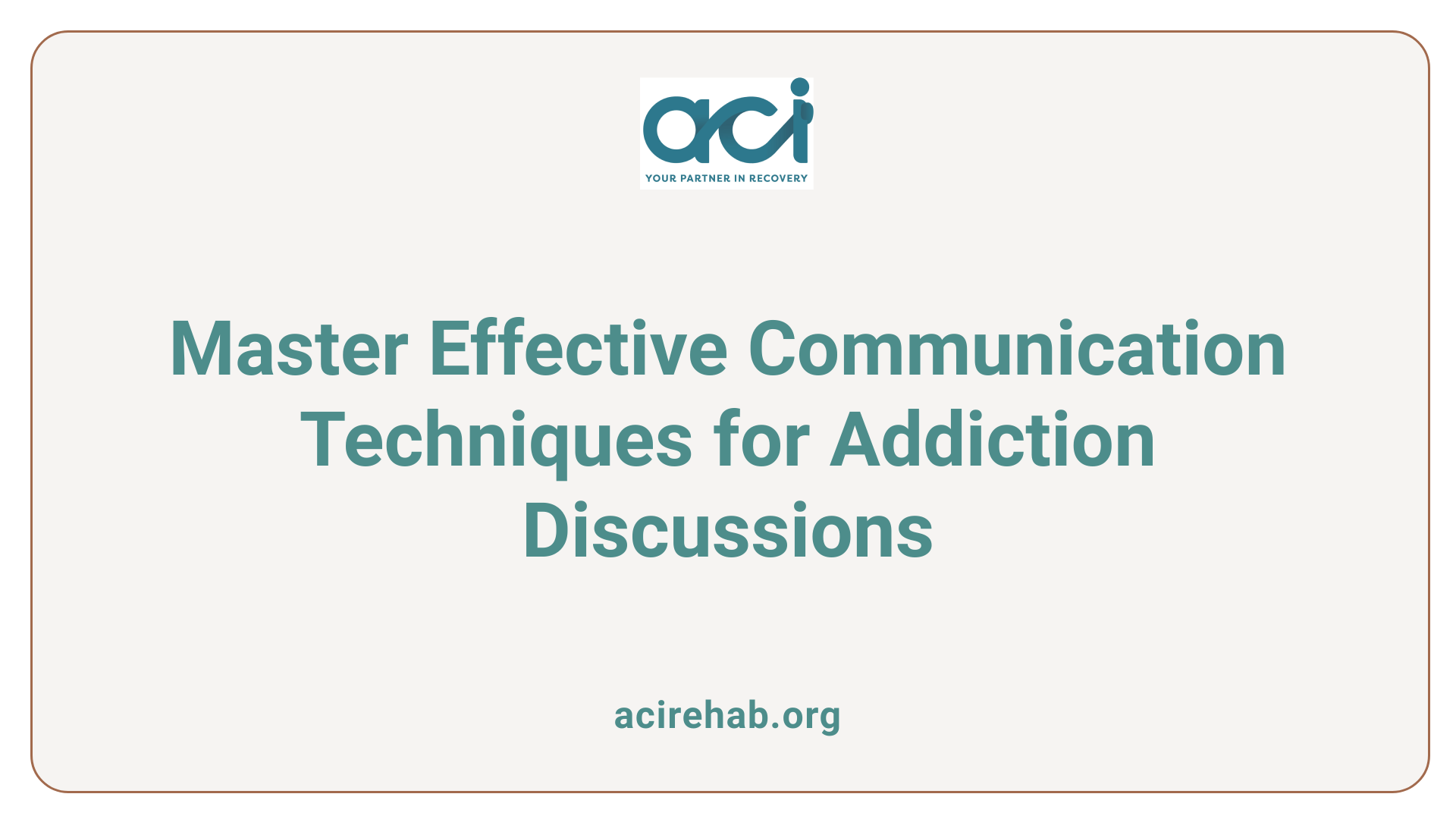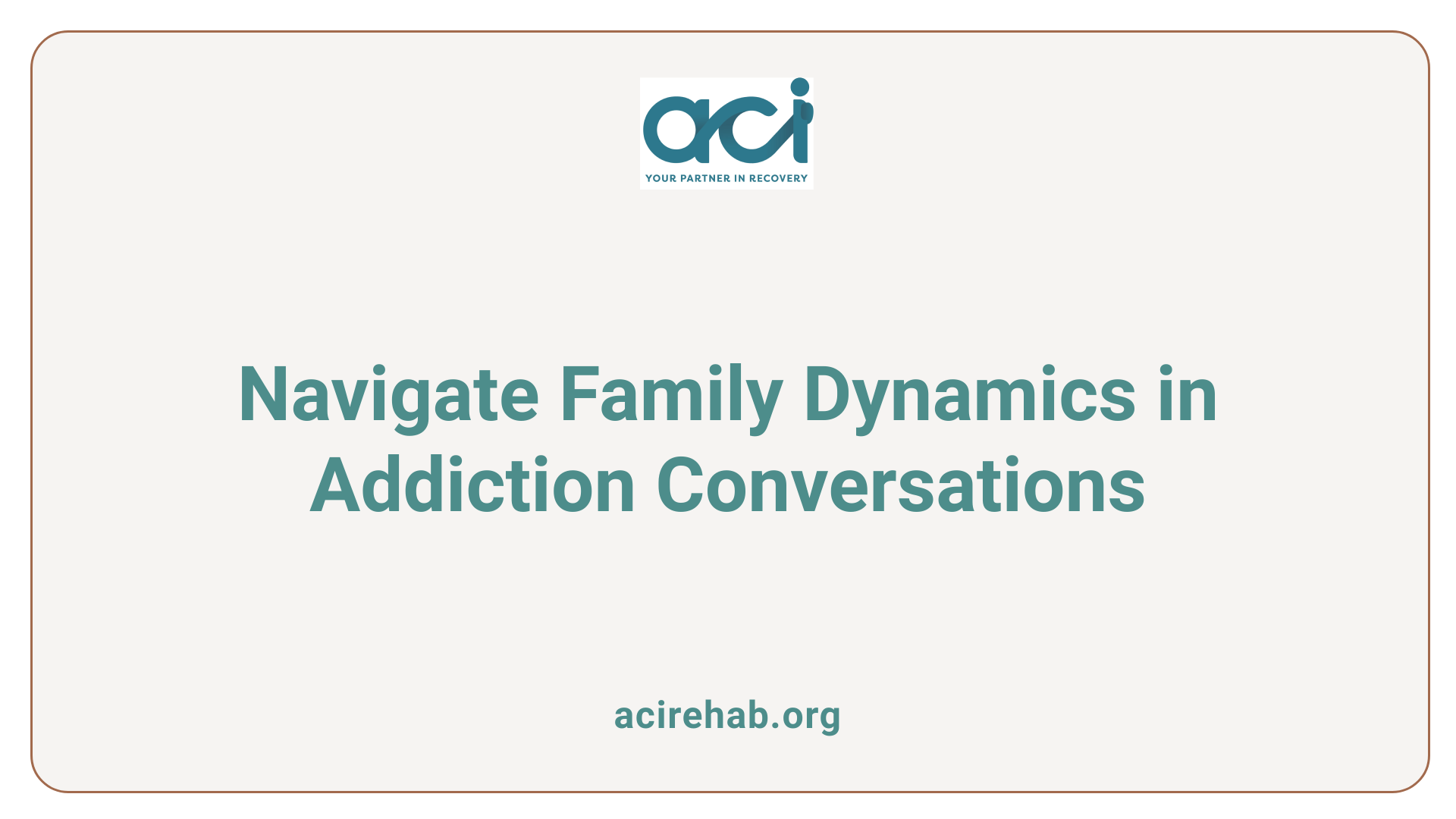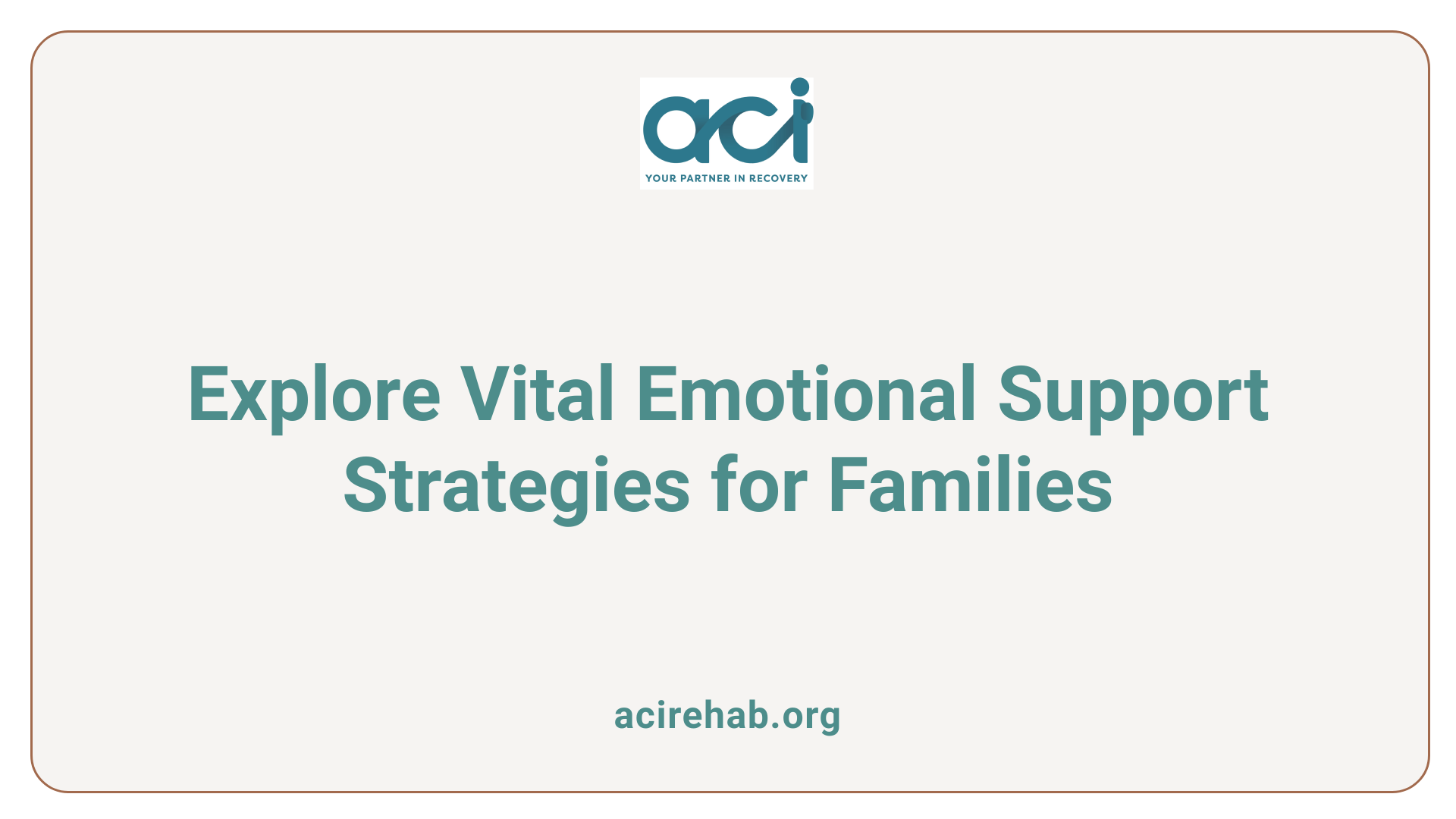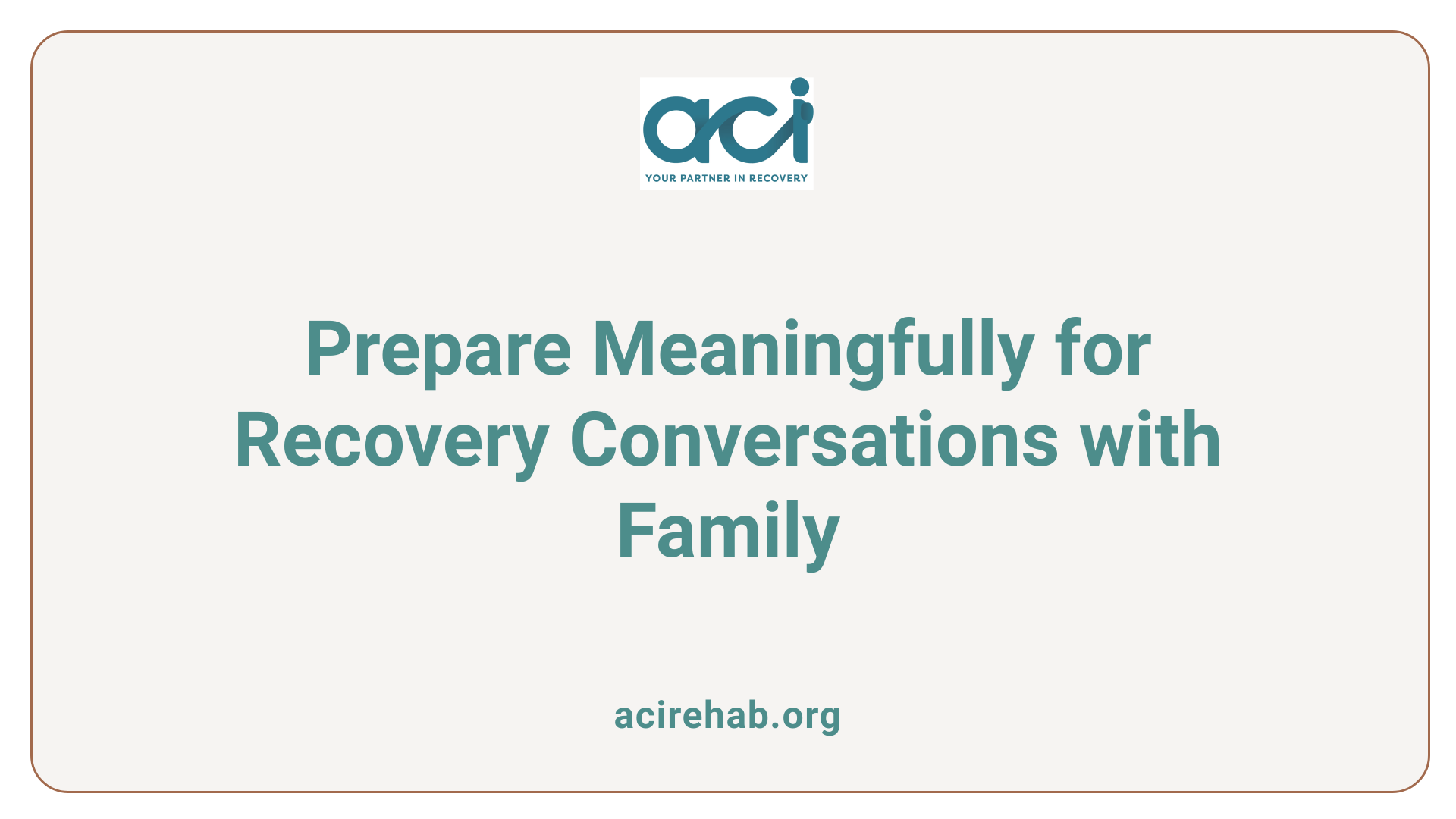Understanding the Importance
Initiating a conversation about addiction with family can be one of the most challenging steps in the journey toward recovery. It’s crucial to understand that addiction not only affects the individual but also ripples through family dynamics, impacting relationships and emotional health. Open communication about addiction can foster understanding, provide essential emotional support, and facilitate a more structured approach to recovery. This article delves into strategies for discussing your addiction with family, emphasizing empathy, effective communication, and the importance of support networks.
Starting the Conversation

How can I start a conversation about addiction with my family?
Starting a conversation about addiction with your family requires careful consideration of timing and approach. Choose a calm and private setting, ideally when the individual is sober, to facilitate an open dialogue. This helps ensure everyone is in the right emotional state for a serious discussion.
Using "I" statements to express your concerns can prevent the conversation from feeling confrontational or judgmental. For example, you might say, "I’ve noticed some changes in your behavior, and I’m concerned about your well-being." This approach invites your loved one to reflect on their feelings and share their thoughts.
Be ready for a range of emotional responses, including defensiveness. Respond with empathy and understanding, emphasizing that your intention is to support them rather than criticize. Encouraging reflection on the topic can lead to deeper understanding.
Choosing the right time and place
Choosing the right time and place for the conversation is crucial. A distraction-free environment where everyone feels comfortable can promote openness. It’s also beneficial to initiate these discussions during calmer moments to avoid escalating tension.
Using empathetic language
Throughout the conversation, use empathetic language. Acknowledge your loved one’s feelings and experiences, reinforcing that addiction is a complex issue. Remember to express your commitment to their recovery and suggest possible next steps, such as seeking professional help, if they seem receptive to the dialogue.
Embracing Effective Communication

What are some effective communication techniques when discussing addiction with family?
Effective communication is essential when addressing the topic of addiction with family members. Here are some valuable techniques to employ during these sensitive conversations:
-
Active Listening: Allow family members to express their feelings and concerns without interruption. This creates a safe environment where they feel valued and understood.
-
Using "I" Statements: Frame your thoughts using "I" statements to convey personal feelings and experiences. For example, say, "I feel worried when I notice changes in your behavior," which avoids sounding accusatory.
-
Choosing the Right Moment: Pick a calm and distraction-free environment for the discussion. This helps ensure everyone is emotionally prepared and can engage in a meaningful dialogue.
-
Avoiding Stigmatizing Language: Use respectful language that recognizes addiction as a health issue, such as referring to someone as a "person with substance use disorder" instead of derogatory terms.
-
Setting Boundaries: Discuss and agree on healthy boundaries during the conversation. This promotes a supportive atmosphere and protects your mental health.
Maintaining open, honest communication empowers both the individual struggling with addiction and their family, facilitating a shared journey towards recovery.
Understanding Family Dynamics

How do family dynamics affect conversations about addiction?
Family dynamics significantly shape discussions about addiction, influencing how family members interact when addressing this sensitive issue.
Effects of addiction on family roles
- Power Imbalances: In many families, addiction can create shifts in roles, leading to an imbalance in power. For instance, one member may become overly protective or enabling, while another may withdraw due to trauma or frustration.
- Emotional Trauma: Family members often carry emotional wounds stemming from the effects of addiction, complicating honest communication. Past grievances can resurface, making discussions about addiction even more challenging.
Stress and stigma impacts
- Financial Strain: The costs associated with treating addiction can stress family resources, contributing to tension and reluctance to discuss these matters openly.
- Fear of Stigma: Many families fear societal judgment, which can inhibit open discussions and discourage individuals from seeking help.
Role of strong support systems
- Encouragement: A supportive family environment can bolster recovery efforts. When members communicate openly, sharing feelings and experiences, it fosters a sense of safety and understanding that is crucial for healing.
- Constructive Dialogue: Recognizing family dynamics allows members to navigate this difficult conversation more effectively, making it easier to support each other through the recovery process.
Overall, understanding these dynamics is vital to facilitate productive conversations about addiction, promoting healing and support within the family unit.
Providing Emotional Support

What emotional support strategies can help when discussing addiction with family?
When addressing the sensitive topic of addiction with family members, employing emotional support strategies is vital. Empathy and patience are foundational elements in these conversations. Recognizing that family members may experience a whirlwind of emotions including shock, anger, or sadness can facilitate a more compassionate dialogue.
One valuable resource is SAMHSA’s National Helpline, which not only offers confidential support but also connections to local treatment facilities and support groups. This enables families to find the right resources, fostering an informed understanding of addiction.
Incorporating family therapy into the recovery process significantly benefits communication. These sessions can promote understanding among family members, helping to rebuild trust and enhance emotional support. Moreover, attending support groups allows families to share their experiences and learn coping strategies together, creating a unified approach towards recovery.
Lastly, involving professionals in discussions about addiction ensures a structured and supportive atmosphere. This structured dialogue promotes a healthier conversation, making it easier for everyone to express their feelings constructively.
Preparation for Recovery Conversations

How can I prepare to talk about addiction recovery with my family?
Preparing for a meaningful conversation about addiction recovery with your family involves several key steps.
-
Educate Yourself and Others
Understanding addiction and its effects is crucial. Learn about the nature of addiction, the recovery process, and the emotional impact it has on everyone involved. This knowledge can help replace stigma with empathy, enabling you to communicate more effectively. -
Choose the Right Time and Place
Find a quiet, comfortable environment where everyone feels safe to express themselves. Ensure that your loved one is sober and emotionally ready for such a conversation to avoid potential arguments or misunderstandings. -
Plan Discussions Thoughtfully
Outline your main points before the talk to keep the conversation focused. Use "I" statements to express your feelings and concerns, and invite family members to share their thoughts as well. It may take multiple conversations to address this complex issue, so be patient. -
Encourage Collective Support
Involve family members in creating a supportive plan for the road to recovery. Discuss counseling options or mutual support groups to fortify the family bond and enhance understanding of each other’s experiences. -
Listen and Acknowledge Feelings
During the conversation, listen actively. Acknowledge the concerns and feelings of each family member, fostering an open and honest dialogue. This approach can help strengthen relationships and encourage a workable dynamic throughout the recovery process.
Decoding Family Reactions
How can I better understand my family’s reactions during discussions about addiction?
Understanding your family’s emotional responses during discussions about addiction is an essential step in bridging gaps and fostering support. It’s common for family members to experience a whirlwind of feelings, including fear, anger, guilt, and frustration. Recognizing these emotions is a starting point for open dialogue.
Promoting a Supportive Environment
Gathering family members to express collective concerns allows everyone to voice their thoughts in a safer space. Utilize open-ended questions and ‘I’ statements to encourage sharing; for example, instead of saying "You don’t understand,” try "I feel worried when I see these changes."
Encouraging Open Dialogue
Acknowledging the complexities of addiction as a disease can help reframe conversations, fostering a compassionate atmosphere. Make it clear that your loved one’s struggles are not moral failures but medical issues that deserve discussion, care, and support. Involving family members in recovery plans—like therapy or support groups—can enhance their understanding, enabling them to be active participants in the healing journey.
Toward Healing and Recovery
Discussing addiction with family is a critical yet daunting task, essential for fostering understanding and building a supportive network. By embracing empathy, effective communication, and emotional support strategies, these conversations can break down barriers and lead to significant strides in recovery. The road to overcoming addiction is complex, often requiring multiple conversations and sustained support from those closest to you. With the right preparation and resources, family discussions can guide individuals toward a healthier, more fulfilling life. Remember, seeking professional guidance and leveraging available support services, like SAMHSA’s National Helpline, are vital steps in creating a comprehensive support system.
References
- SAMHSA’s National Helpline
- How to Tell Your Family That You’re Struggling With Addiction
- How to Speak Candidly with Your Family About Addiction
- How to talk to a family member or friend about their drug or alcohol use
- How Do I Tell My Family That I’m Addicted to Drugs? | RCA
- Talking to someone about their drinking or drug use
- A Guide on Talking to Your Family About Your Addiction
- Communicating With Someone With Addiction – Verywell Mind

